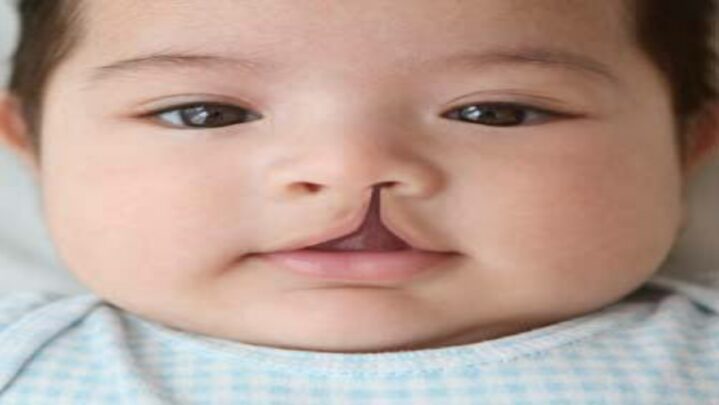Cleft lip and palate are facial and oral deformities that arise early in pregnancy when the baby is still developing within the mother. Clefting occurs because there is insufficient tissue in the mouth or lip area, and the tissue that is present does not correctly link together.
A fine lip is a physical division or separation of the two sides of the top lip, showing up as a thin opening or breach in the skin of the top lip. This division often goes beyond the nose bottom and encompasses the upper jaw and/or gum bones.
A split or opening in the roof of the mouth is known as a cleft palate. The hard palate (the bony front portion of the roof of the mouth) and/or the soft palate can both be affected by a cleft palate (the soft back portion of the roof of the mouth). On one or both sides of the mouth, cleft lip and palate can form. Because the lip and palate develop individually, a cleft lip can exist without a cleft palate, a cleft palate can exist without a cleft lip, or both can exist.
What is the Cause of a Cleft Lip and Palate?
According to Web MD, The majority of the time, the reason for cleft lip and palate is unknown. These situations are unavoidable. Clefts are thought to be caused by a combination of genetic and environmental causes, according to most scientists. If a sibling, parent, or relative has had clefting, there appears to be a higher risk of clefting in a baby.
Another possible cause is a drug that a woman may have taken throughout her pregnancy. Cleft lip and palate can be caused by certain medications. Anti-seizure/anticonvulsant pharmaceuticals, Accutane-containing acne medications, and methotrexate, a treatment often used to treat cancer, arthritis, and psoriasis, are among them.
How to prevent Cleft lip and palate?
Cleft lip and palate in your child are not always preventable. However, there are several things you can do to help lessen the risk of your baby developing these birth defects, as mentioned by March of Dimes.
• Take folic acid, for example. Take a multivitamin with 400 micrograms of folic acid every day before becoming pregnant. Take a prenatal vitamin with 600 mcg of folic acid every day during pregnancy.
• Don’t smoke or consume alcoholic beverages. Beer, wine, and liquor are examples of alcoholic beverages.
• Get a pre-conception examination. This is a pre-pregnancy medical examination to ensure that you are healthy when you get pregnant.
• Before you get pregnant, get to a healthy weight and talk to your doctor about gaining a healthy amount of weight during your pregnancy.
• Check with your doctor to see whether any medications you’re taking are safe to take during pregnancy. During pregnancy, you may need to stop taking a medication or switch to one that is safer. Do not discontinue taking any medications without first consulting your doctor.
• If you do become pregnant, seek prenatal care as soon as possible. Prenatal care is medical attention provided to you while you are pregnant.
• Defend yourself against infections. Check with your doctor to make sure you’re up to date on all of your vaccines, including for rubella. Vaccinations aid in the prevention of certain illnesses. Keep a safe distance from infected people.
Keep reading successyeti.com.
Also Read: Basal Cell Carcinoma: Causes & Treatment





